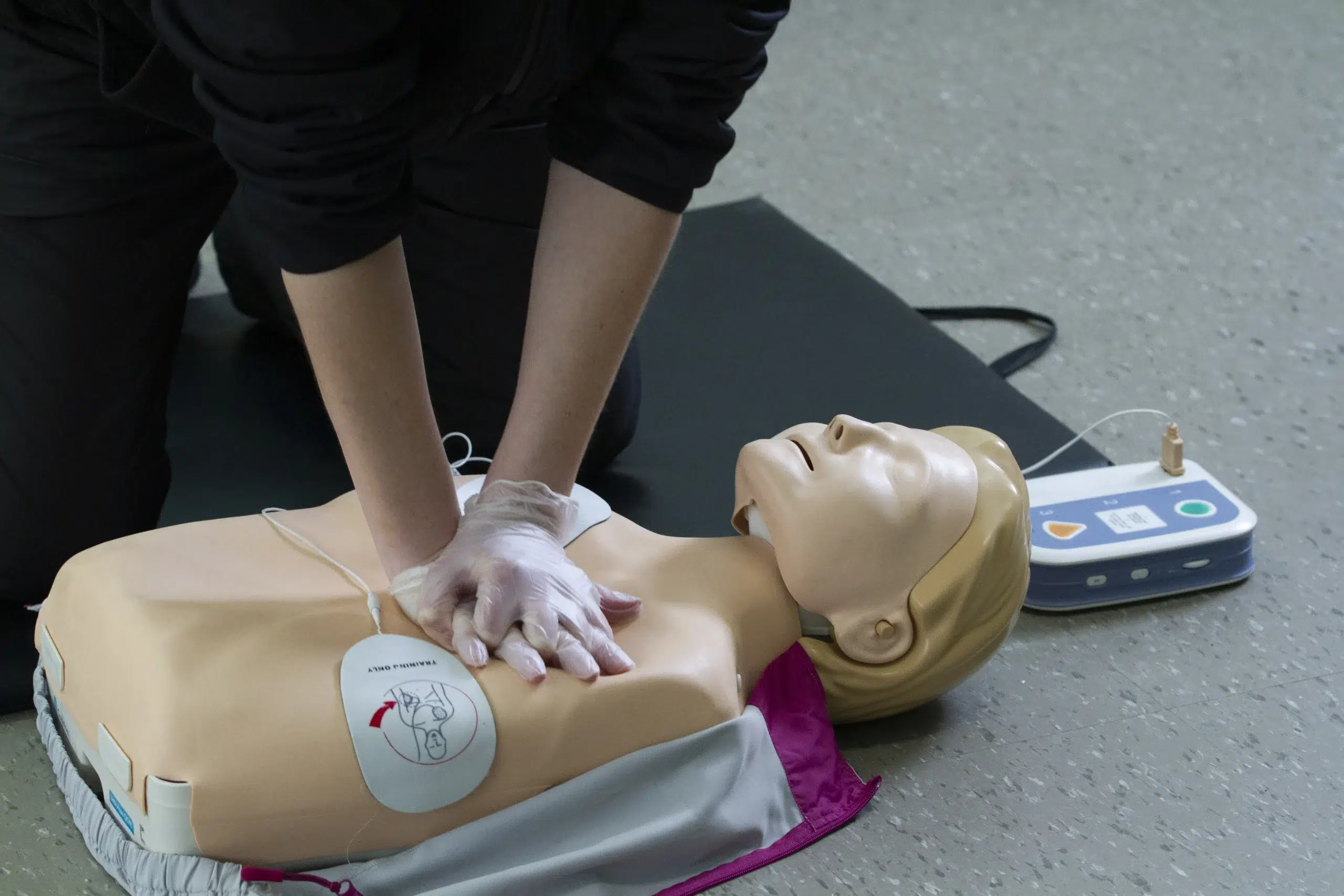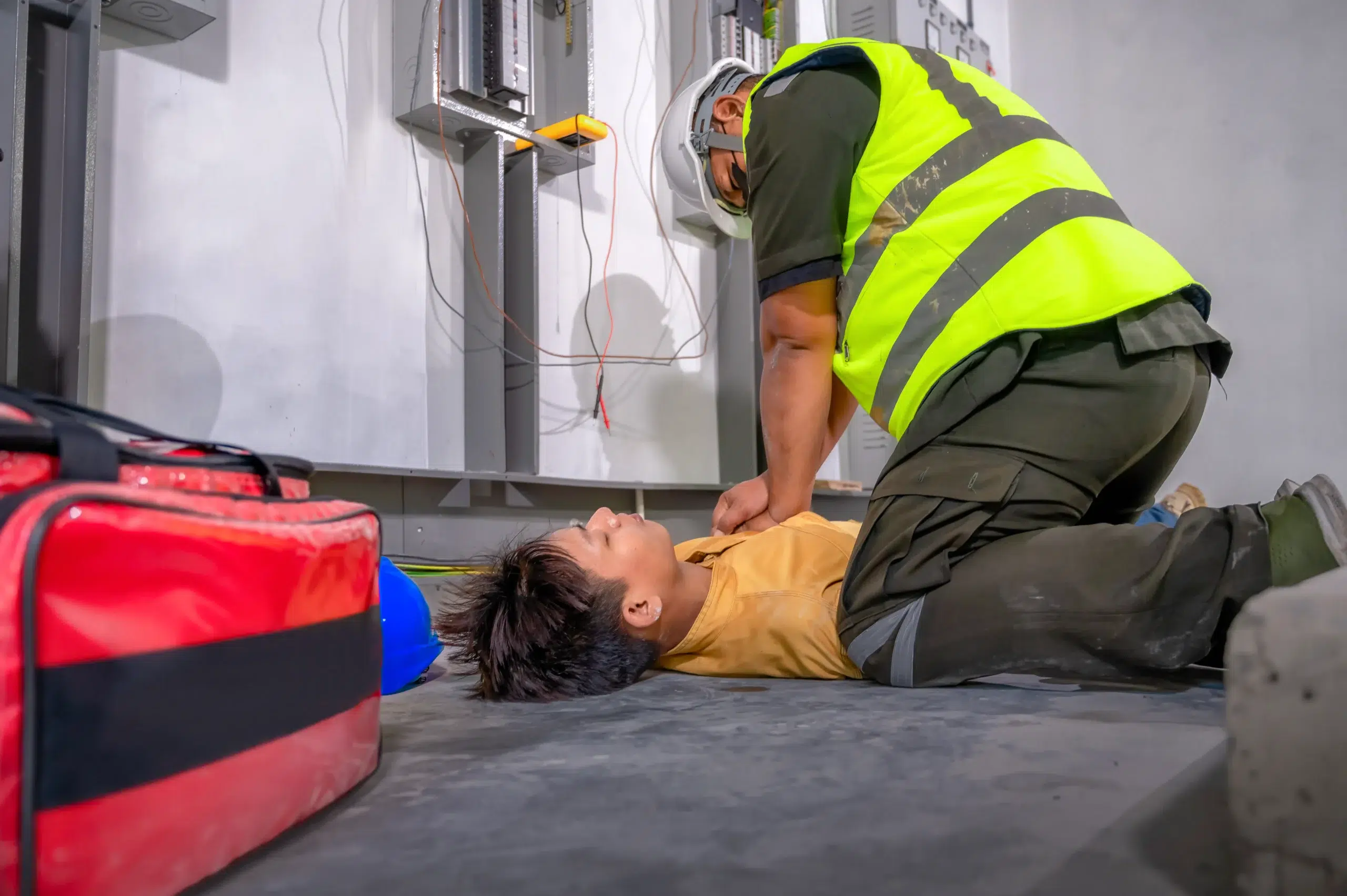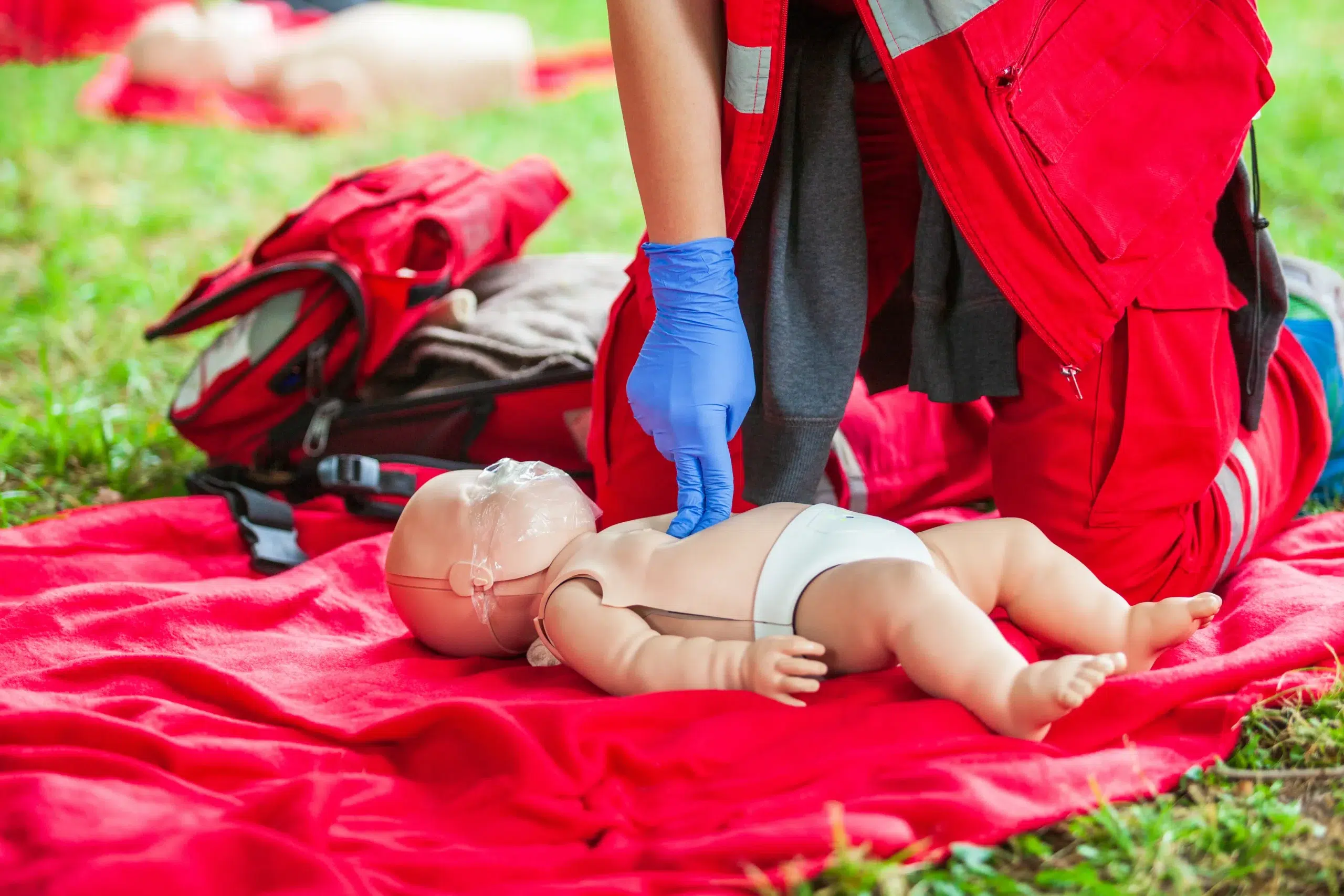As a nurse, you’re the heartbeat of patient care, often the first line of defense in critical situations. When every second counts, having rock-solid advanced cardiovascular life support (ACLS) skills can make all the difference. This isn’t just about checking a box on your resume—it’s about being prepared to confidently handle cardiac emergencies and provide the best possible care. This post explores why ACLS certification is so vital for nurses, breaks down what’s covered in ACLS courses for nurses in Danville, and guides you through the process of getting certified and staying up-to-date. We’ll also debunk some common ACLS myths and highlight the career advantages of having this crucial certification.
Key Takeaways
- ACLS is a must-have for nurses: It provides advanced life-saving skills beyond basic CPR, empowering you to confidently manage complex cardiovascular emergencies and improve patient outcomes.
- Stay sharp and current: Regular ACLS recertification keeps your skills and knowledge fresh, ensuring you’re up-to-date with the latest advancements and best practices in cardiac care.
- Find the right ACLS course for you: Consider your learning style and schedule when selecting an AHA-certified training center. Danville CPR Classes offers flexible options, including blended learning, to fit your needs.
What is ACLS Certification? Why is it Crucial for Nurses?
ACLS (Advanced Cardiovascular Life Support) certification is a vital credential for healthcare professionals, especially nurses, who are often on the front lines of patient care. It signifies a higher level of competence in managing severe cardiovascular emergencies. Building upon basic life support skills like CPR, ACLS equips nurses with the knowledge and techniques to handle life-threatening situations effectively. Think of it as the next step in your training, allowing you to provide more advanced care during critical moments. This certification demonstrates a commitment to delivering high-quality patient care and can significantly impact patient outcomes. It’s relevant across various healthcare settings, proving beneficial for any nurse who might encounter a cardiac emergency.
For nurses, ACLS certification isn’t just about obtaining a credential—it’s about acquiring a crucial set of skills. ACLS training empowers nurses to confidently manage cardiac and respiratory emergencies, administer medications appropriately, and make quick, informed decisions under pressure. Whether you work in a critical care unit, emergency room, or even a smaller clinic, these situations can arise unexpectedly. Having the advanced training provided by ACLS ensures you’re prepared to respond effectively and potentially save lives. It also fosters a sense of preparedness and confidence, reducing anxiety and promoting decisive action during critical incidents. Beyond the direct patient care benefits, maintaining current ACLS certification demonstrates your dedication to professional growth and can create opportunities for career advancement.
Key Skills Covered in ACLS Training
ACLS certification equips healthcare providers with the advanced skills needed to manage life-threatening heart and breathing emergencies. It’s a comprehensive program that goes beyond basic CPR, covering advanced techniques and protocols for managing cardiac arrest and other cardiovascular emergencies. For nurses, this training provides a strong foundation for confident and effective patient care.
Essential Techniques for Cardiac Emergencies
This portion of ACLS training focuses on the practical skills needed during a cardiac emergency. You’ll learn advanced cardiovascular life support techniques, including high-quality CPR and how to recognize and manage different heart rhythms. Administering medications is also a key component, covering the appropriate drugs and dosages for various cardiac events. You’ll also develop skills in interpreting electrocardiograms (ECGs), enabling you to quickly assess a patient’s cardiac status and make informed treatment decisions. Danville CPR Classes offers comprehensive training in these essential techniques.
Team Dynamics and Communication
Effective teamwork and clear communication are paramount in high-pressure emergency situations. ACLS training emphasizes these vital non-technical skills, recognizing that communication breakdowns can hinder effective team dynamics. You’ll learn how to communicate clearly and concisely with other team members, ensuring everyone understands the situation and works towards a common goal. Understanding roles and responsibilities within the team is also critical for a smooth and coordinated response. This training prepares you to confidently manage cardiac emergencies as part of a cohesive and effective team. For more insights, explore resources on overcoming common challenges in team dynamics and managing cardiac emergencies.
ACLS Certification: Process and Renewal
How Long is ACLS Certification Valid?
ACLS certification is valid for two years. This timeframe helps healthcare providers, like nurses, stay current with the latest resuscitation guidelines and best practices. It’s a standard timeframe across the board, allowing advancements in emergency cardiac care to be integrated into practice regularly. Think of it like renewing your driver’s license—a periodic check-in to ensure everyone’s on the same page and providing the best possible care. After two years, you’ll need to recertify to maintain your ACLS credentials, keeping your skills sharp and your knowledge current.
How to Recertify
Recertification is key for healthcare providers to stay informed on advancements in ACLS. It typically involves a refresher course, like those offered by Danville CPR Classes, and a skills assessment. This confirms you have the knowledge and skills to handle cardiac emergencies effectively. The recertification process is designed to be straightforward, focusing on core concepts and any updates to the guidelines. Maintaining your ACLS certification demonstrates your commitment to high-quality patient care and staying at the forefront of your field. Regularly refreshing your skills ensures you’re prepared for critical situations.
ACLS Courses in Danville
This section helps you find high-quality ACLS courses in Danville, covering cost and course formats, so you can make informed decisions about your training.
Danville CPR Classes: Your Local AHA Training Center
Danville CPR Classes is an official American Heart Association (AHA) Training Center, offering various AHA-certified courses, including ACLS. Before you register for an ACLS course, make sure you have a current AHA BLS (Basic Life Support) for Healthcare Providers certification. This is essential for ACLS training. Danville CPR Classes serves the surrounding areas, including San Ramon and Dublin. Their commitment to high-quality instruction makes them a great choice for local healthcare providers seeking ACLS certification. You can contact them to learn more about upcoming courses.
Comparing Course Formats & Costs
ACLS certification costs vary, but Danville CPR Classes offers a competitive rate of $290, which includes online learning materials, in-person skills testing, and your official AHA ACLS provider card. This covers everything you need to complete the course. They offer flexible course options to accommodate busy healthcare professionals. Learn more about their low price guarantee on their website. If you prefer a traditional learning experience, in-person ACLS courses provide a structured environment with direct interaction with instructors and peers, allowing for immediate feedback and a collaborative learning experience.
Choosing the Right ACLS Course
So, you’re ready to pursue your ACLS certification—great! Choosing the right course is an important step. This section covers key factors to consider when selecting an ACLS course that aligns with your needs and learning style.
Factors to Consider
First things first: ACLS certification equips healthcare providers with the advanced skills needed to manage life-threatening heart and breathing emergencies. It’s a vital credential for nurses who are often the first responders in critical situations. Before you register for an ACLS course, ensure you have a current AHA BLS (Basic Life Support) for Healthcare Providers certification card. This is a non-negotiable prerequisite. Think of BLS as the foundation upon which you’ll build your ACLS knowledge.
Beyond the basics, consider your learning preferences and schedule. Do you thrive in a structured classroom, or do you prefer the flexibility of online learning? How much dedicated study time can you realistically commit to? Also, research the course provider. Look for an AHA Training Center with a solid reputation, experienced instructors, and competitive pricing. Danville CPR Classes offers a low price guarantee.
Online vs. In-Person Training
Many ACLS providers understand the demands of a healthcare career and offer flexible course options. Danville CPR Classes offers a blended learning approach, combining online and in-person components. The online portion typically takes three to four hours and covers the theoretical aspects of ACLS. You can work through the material at your own pace. After completing the online modules, you’ll schedule a short, in-person skills test at one of their 60+ testing sites. This hands-on session allows you to demonstrate your proficiency in essential ACLS techniques under the guidance of a certified instructor. This blended format offers a practical and convenient way to earn your ACLS certification.
Preparing for Your ACLS Course
Getting ready for your ACLS course doesn’t have to be overwhelming. With the right approach and resources, you can walk into the classroom feeling confident and prepared. This section covers essential study materials and practical tips to help you succeed.
Recommended Study Materials
Start with the ACLS Provider Manual, your go-to resource for course content. Pair this with practice tests and online tutorials to reinforce key concepts and identify areas where you might need extra focus. Many providers offer supplemental online resources, so check with Danville CPR Classes about availability. Thorough preparation will make the in-class portion of your training that much more effective.
Tips for Success
Hands-on practice is key to mastering ACLS skills. Practice essential skills like CPR, airway management, and ECG interpretation in a simulated environment, if possible. This builds proficiency and confidence. Nursing Science offers helpful advice on preparing for ACLS certification. Beyond technical skills, effective communication is crucial in high-pressure medical situations. Practice clear and concise communication with your team. Cascade Training points out that communication breakdowns are a common challenge during ACLS evaluations. Focus on teamwork and communication beforehand to be better equipped to handle the complexities of a real emergency. ACLS is about teamwork, and strong communication is the foundation of a successful team.
Common ACLS Misconceptions
Debunking Myths for Nurses
It’s easy to get confused about ACLS certification, especially with so much information floating around. Let’s clear up a few common misconceptions nurses often have about this essential training.
First, some nurses believe ACLS certification is only for certain medical professionals, like ER physicians or paramedics. This isn’t true. While those roles certainly benefit from ACLS training, it’s highly relevant for any nurse who might encounter a cardiac emergency. Think about it: cardiac events can happen anywhere, not just in the ER. Having these specialized skills makes you a more valuable asset to your team and, more importantly, better equipped to provide crucial care. ACLS empowers nurses to respond effectively in critical situations, no matter where they work.
Another misconception is that ACLS certification is a one-and-done deal. Unfortunately, that’s not the case. Recertification is crucial for all healthcare providers, including nurses. Medical knowledge and best practices are constantly evolving, and regular training ensures you’re up-to-date on the latest advancements in ACLS care and protocols. Think of it like renewing your driver’s license—it’s about staying current and qualified.
Many people also assume ACLS is just advanced CPR. While CPR skills are definitely a core part of ACLS, it goes much further. ACLS covers a broader range of skills, including medication administration, advanced airway management, and recognizing different cardiac rhythms. It’s a more comprehensive approach to patient care during cardiac emergencies.
Finally, some nurses believe ACLS training isn’t necessary if they don’t work in emergency settings. Again, this isn’t quite right. Cardiac emergencies can occur in any healthcare environment. Having ACLS training under your belt means you’re prepared to respond effectively, no matter where you are. Being proactive and prepared can make all the difference in a critical situation.
Important ACLS Guideline Updates
Key Changes for Nurses
Staying up-to-date with the latest American Heart Association (AHA) guidelines is critical for nurses providing advanced cardiovascular life support. The 2023 ACLS Focused Update introduced several key changes impacting how nurses manage cardiac arrest and post-arrest care. Understanding these updates ensures you’re equipped to deliver the most effective care.
One significant change involves the use of vasopressors and calcium during intra-arrest management. The updated AHA guidelines offer revised recommendations for these medications, influencing how nurses administer them during resuscitation. Another important update addresses temperature management after return of spontaneous circulation (ROSC). The 2023 update reaffirms that routinely using rapid infusion of cold IV fluids for prehospital cooling isn’t recommended. This reinforces the need for nurses to implement a careful, controlled temperature management strategy for all adult patients post-ROSC, regardless of their initial arrest rhythm or location. This includes patients who don’t follow commands after ROSC. For nurses involved in ACLS training, staying aware of these guideline changes is essential.
As instructors, you play a vital role in educating other healthcare providers on the latest evidence-based practices. Resources like Vitali offer helpful summaries and guidance for incorporating these updates into your teaching. By staying informed and adapting your practices, you can contribute to better patient outcomes and maintain the highest standards of care.
Benefits of ACLS Certification for Nurses
Holding an ACLS certification benefits nurses both professionally and in terms of patient care. It’s a powerful credential that demonstrates a commitment to excellence in nursing.
Career Advancement
ACLS certification is often a prerequisite for higher-level nursing positions, especially in critical care settings like emergency rooms, intensive care units, and operating rooms. Many hospitals and healthcare facilities require their nurses to hold a current ACLS certification. It shows you have the advanced skills to handle complex cardiovascular emergencies, making you a more competitive candidate for promotions and specialized roles. Earning your ACLS certification can significantly advance your healthcare career and open doors to new opportunities.
Improved Patient Care
Beyond career advancement, ACLS certification equips nurses with the skills to provide exceptional patient care during critical situations. The training covers a range of advanced life-saving techniques, from medication administration and ECG interpretation to effective team communication during resuscitation efforts. These skills are essential for positive patient outcomes. Mastering these techniques allows nurses to respond confidently and efficiently during cardiac emergencies, ultimately improving the quality of care they provide. Maintaining your ACLS certification demonstrates a continued commitment to high-quality patient care and reinforces your professional credibility.
Maintaining ACLS Skills & Continuing Education
As a nurse, your ACLS certification isn’t a one-and-done deal. It’s an ongoing commitment to providing top-notch patient care. This section explores how to integrate ACLS into your professional development and keep your skills sharp.
Integrating ACLS into Professional Development
ACLS certification is fundamental for nurses handling life-threatening cardiac emergencies. It goes beyond basic CPR and equips you with the advanced knowledge to respond effectively in critical situations. Maintaining your ACLS certification demonstrates your dedication to high-quality patient care, a crucial aspect of today’s fast-paced healthcare world. Think of it as a core competency that strengthens your professional profile and builds confidence in your abilities. By prioritizing ACLS, you’re investing in your career and the well-being of your patients.
Keeping Skills Sharp
Staying current with your ACLS certification isn’t just about maintaining credentials; it’s about staying at the forefront of advancements in cardiac care. Regular recertification ensures you’re up-to-date with the latest guidelines and best practices, vital for effective patient management. Consider incorporating regular reviews and practice scenarios into your routine. This reinforces your skills and keeps your knowledge fresh, allowing you to respond confidently and efficiently during real-world emergencies. Danville CPR Classes offers various ACLS courses designed to help healthcare professionals like you hone these essential skills.
Related Articles
- ACLS Renewal Near Me: How to Recertify – Danville CPR Classes
- ACLS Courses in Danville: Your Certification Guide – Danville CPR Classes
- ACLS Courses in Dublin: A Complete Guide – Danville CPR Classes
- Advanced Cardiac Life Support (ACLS) in Danville – Danville CPR Classes
- ACLS Certification in San Ramon: Your Comprehensive Guide – Danville CPR Classes
Frequently Asked Questions
Why is ACLS certification important for nurses? ACLS certification is crucial for nurses because it equips them with the advanced skills and knowledge to manage life-threatening cardiovascular emergencies. It builds upon basic life support training, enabling nurses to confidently handle complex situations, administer appropriate medications, and make critical decisions under pressure. This specialized training can significantly improve patient outcomes and demonstrates a commitment to high-quality care.
What key skills are covered in ACLS training? ACLS training covers a wide range of essential skills, including advanced cardiovascular life support techniques, high-quality CPR, recognition and management of various heart rhythms, medication administration, and ECG interpretation. It also emphasizes effective teamwork and communication, crucial for coordinated responses during emergencies.
How long is ACLS certification valid and how do I recertify? ACLS certification is typically valid for two years. Recertification usually involves completing a refresher course and a skills assessment to ensure you’re up-to-date with the latest guidelines and maintain your proficiency.
What’s the difference between online and in-person ACLS courses? Online ACLS courses offer flexibility, allowing you to learn the theoretical content at your own pace. In-person courses provide a structured environment with direct interaction with instructors and peers, facilitating immediate feedback and hands-on practice. Blended learning formats combine the benefits of both.
How can I best prepare for my ACLS course? Thorough preparation is key to success in your ACLS course. Study the ACLS Provider Manual, utilize practice tests and online resources, and focus on hands-on practice of essential skills like CPR, airway management, and ECG interpretation. Also, practice clear and concise communication, as effective teamwork is crucial in emergency situations.








